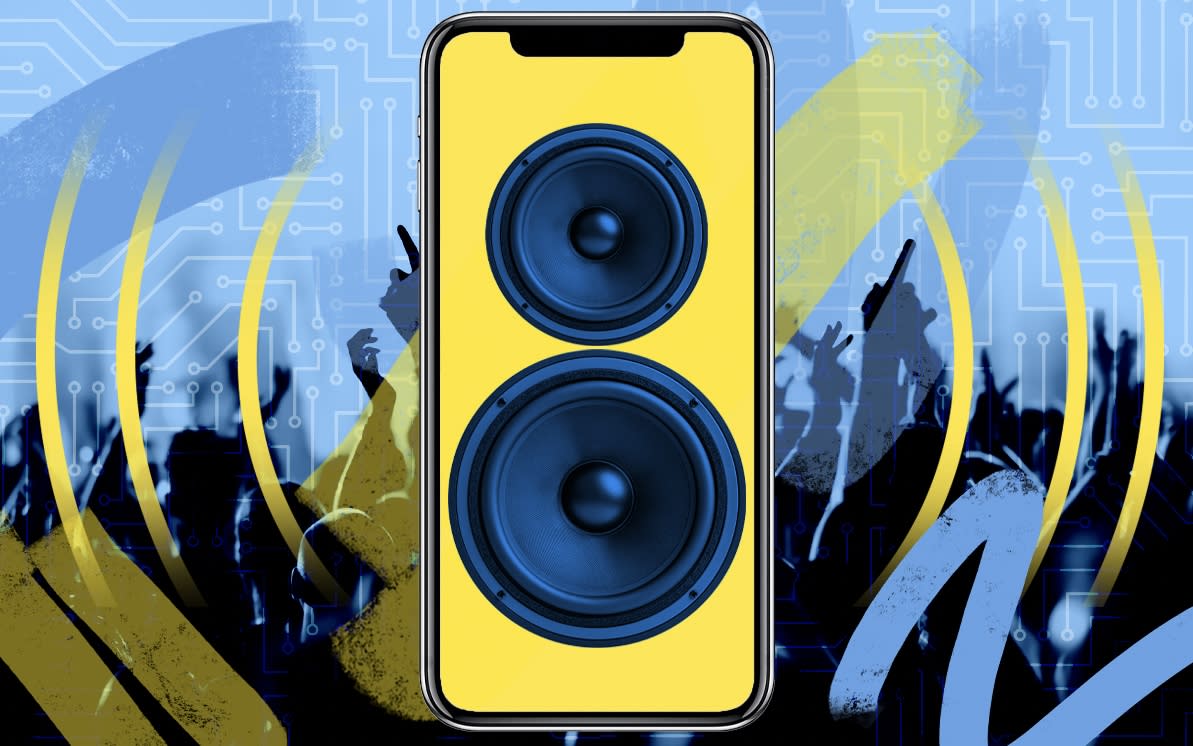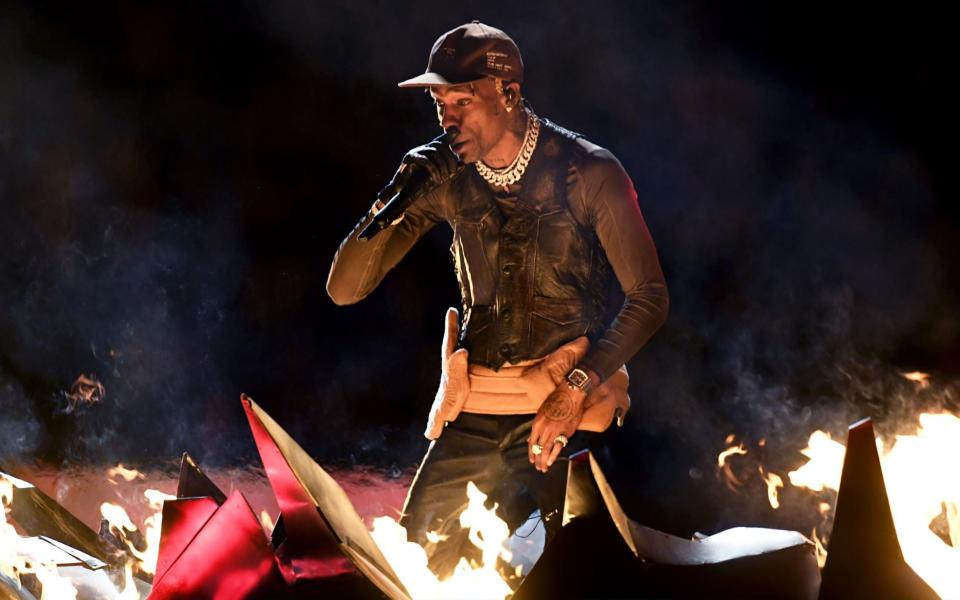Out of tune: How the pandemic has changed live music for good

- Oops!Something went wrong.Please try again later.
Nathan Evans has only ever performed live in front of 50 people, at most. But after his video of 19th century sea shanty Wellerman went viral on TikTok this year, the former postman says he expects to sing in front of much larger audiences.
“It’s going to be different playing in front of hundreds and thousands of people,” grins the 26-year-old, who has 1.3m followers on TikTok. “I guess we’ll find out if I’m prepared the first time I walk out on that stage.”
Evans is just one of a new breed of singers who has used social media to amass millions of loyal fans during lockdown.
According to TikTok, more than 70 artists who made their debut on the app last year ended up signing major record deals, including the likes of Claire Rosinkranz and Dixie D'Amelio.
@nathanevanss The Wellerman. ##seashanty ##sea ##shanty ##viral ##singing ##acoustic ##pirate ##new ##original ##fyp ##foryou ##foryoupage ##singer ##scottishsinger ##scottish
♬ Wellerman - Sea Shanty - Nathan Evans
Now, as musicians around the world prepare to return to the stage, they face having to navigate an industry transformed by the pandemic.
Greg Parmley, chief executive of live music trade body LIVE, says musicians will increasingly embrace live streams on social media sites and within video games such as Fortnite, even as gig venues begin to open up later this month.
“Live events and streaming are two very different experiences, and will both run in parallel,” he argues.
The intimacy provided by live streaming has helped revive some artists’ fortunes during lockdown. Sophie Ellis-Bextor, for instance, has enjoyed renewed popularity after staging Friday night karaoke sessions in her kitchen with her five children, and streaming it live on Instagram.
Others have recreated the live experience on a mass scale. In July, more than 12m people logged into Fortnite to watch US rapper Travis Scott’s in-game concert. Sony has since invested $250m (£195m) in Fortnite owner Epic Games, taking a 1.4pc stake in the company, as it attempts to broaden its entertainment offering.
“We’re not going to find a substitute for being in an intimate small venue, where the artist is 30 feet away from you, where you can see the sweat on his brow, that’s an experience that no TikTok live stream can match,” says Ole Obermann, TikTok’s global head of music. “But there’s a really nice complimentary feature here.”
In his view, “someone like Justin Bieber will continue to use live streaming as part of an overall promotional plan, to introduce a new song, a new album, maybe even kick off a tour” .
Live streaming music performances could allow artists to continue reaching audiences in countries where their fan-base is not yet well-established, and where the economics to tour do not add up. “There’s a way they can reach hundreds of millions of active users in a lot of these countries,” says Obermann.
Record labels are also spending cash on developing ways to get their artists’ songs out into the world, and for Sony, smart speakers are an area of particular interest.
In the UK, Sony says about 12pc of all streams come through a voice-initiated command, meaning people asking Siri or Alexa to play songs. Globally, the level is about half that figure. Sony forecasts that this will increase to around a fifth of all global searches for music within the next three to four years.
This trend was something that Dennis Kooker, Sony Music’s head of global digital business, says was “always going to happen”, but the pandemic has sped up the shift.
“Voice-activated listening, and actually gaming console-activated listening, has exploded during the pandemic.” This is because fewer people were out and about, and were using their smartphones to search for songs, he explains.
Sony is spending “a lot of time working before a song is released to ensure that when it comes onto the market and when a consumer asks for it on their smart speaker, they’re not getting a failure, where that song doesn’t come up”.
That means employing data scientists to make sure every possible combination of queries about a song, or something that sounds similar to the song, result in a smart speaker playing that specific tune.
It comes as part of a wider shift to use more data across the Sony Music business, which also includes the company spending cash on developing an artist portal, where they can track which songs are performing well and track their royalties.

Kooker says there are really exciting changes coming down the line, that it is urging its artists to embrace. “We think virtual is a permanent part of the future of music.”
Parmley, however, is keen to point out that none of this means the death of live music, and revellers are “desperate” to book tickets to gigs.
According to figures by the Music Venue trust, more than 4,000 shows across over 400 venues predicted to take place during the month. More than 2,500 socially distanced shows are already on sale in 266 venues from 17 May to 21 June.
“There’s a huge amount of pent up demand. I’d actually say we’re probably going to be in a situation where there won't be enough spaces in venues for the amount of artists that want to perform, because there’s almost two years of regular tours that will be backed up.”
Artists will likely be very keen, says Tim Collins from Gen Z marketing specialists Creed Media. “There’s a worry for artists being one hit wonders, because they haven’t been able to tour. They’re at this crucial moment of either being forgotten or not.”
For Evans seeing his fans in person is more exciting to him than seeing his follower count grow online. Having become famous during the pandemic, and performing solely on TikTok, he’s looking forward to finally getting to gig in person.
“I like doing TikTok live streams, but as a singer, you really want to be seeing your fans. The only place I’ve really been during the pandemic is to the supermarket and back, so it will be surreal. But it’s been an absolute dream of mine to be able to play my music in front of people.”
Despite owing his success to social media, even Evans isn’t willing to let go of in-person concerts just yet.
In the second part of our Future of Entertainment series, published online on Thursday 6 May, we look at how robots are taking over the arts

